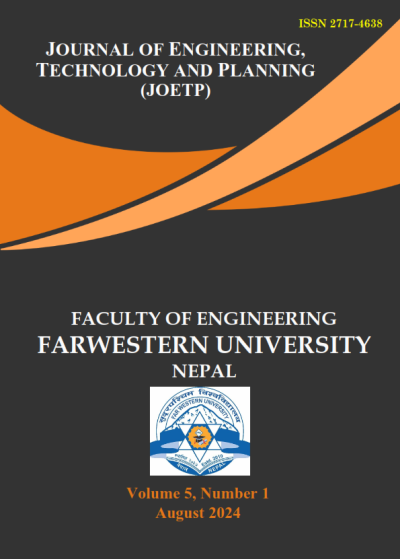Bridge to Professional Practice: Evaluating Internship Effectiveness and Coordination for Civil and Hydropower Engineering Graduates, A Study of Mid-West University of Nepal using ANN
DOI:
https://doi.org/10.3126/joetp.v5i1.69727Keywords:
ANN, Civil Engineering, Professional Practice, Internship, Hydropower Engineering, Internship Effectiveness, Sensitivity AnalysisAbstract
The transition from academia to professional engineering practice is a pivotal and formidable challenge for graduating engineers. This research explores the effectiveness of internship programs for final semester undergraduates’ students in Civil and Hydropower Engineering of Mid-West University, based on data collected from 77 intern students by evaluating the acquired knowledge and skills during internships, while also exploring the associated benefits and the level of co-ordination between university and the internship organizations. Questionnaires assessed self-evaluated knowledge and skills gained, perceived benefits of the internship, co-ordination by the university and the department, and challenges encountered. Data analysis utilized descriptive statistics and an Artificial Neural Network (ANN) model to identify factors influencing internship effectiveness. Results indicated that the effective coordination between universities and industry significantly enhances internship outcomes, impacting students’ practical skill development. The study underscores the importance of collaborative efforts in fostering industry-relevant competencies among future construction engineers. These findings suggest practical implications for universities in refining internship initiatives, improving curricula, and establishing robust internship guidelines to better prepare students for professional careers in engineering disciplines.
Downloads
Downloads
Published
How to Cite
Issue
Section
License
Copyright © Faculty of Engineering, Far Western University

